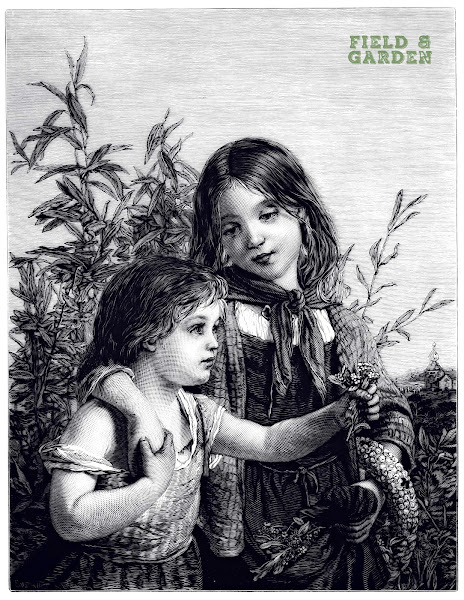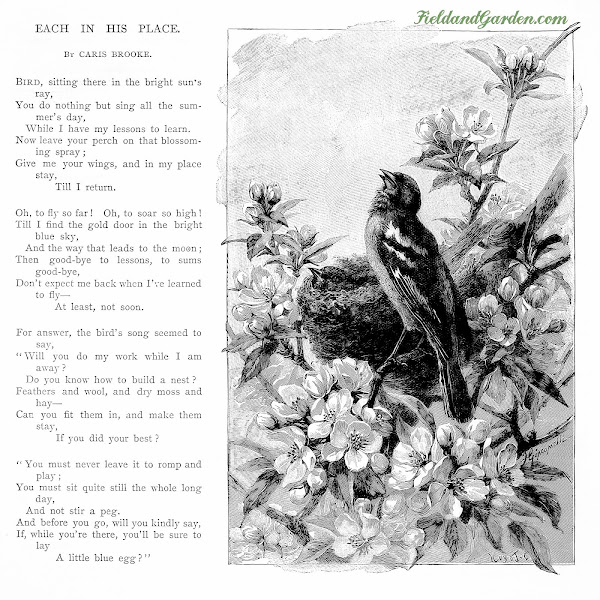I saw two children pass:
Their footsteps, slow yet lightsome,
Scarce bent the tender grass.
One, lately out of babyhood,
Looked up with eager eyes;
The other watched her wistfully,
Oppressed with smothered sighs.
"See, mother!" cried the little one,
"I gathered them for you?
The sweetest flowers and lilies,
And Mabel has some too."
"Hush, Nelly!" whispered Mabel,
"We have not reached it yet.
Wait till we get there, darling,
It isn't far, my pet."
"Get where?" asked Nelly. "Tell me."
"To the church-yard," Mabel said.
"No! no!" cried little Nelly,
And shook her sunny head.
Still Mabel whispered sadly,
"We must take them to the grave.
Come, darling?" and the childish voice
Tried to be clear and brave.
But Nelly still kept calling
Far up into the blue;
"See, mother, see, how pretty
We gathered them for you."
And when her sister pleaded,
She cried -- and would not go: --
"Angels don't live in church-yards,
My mother don't, I know."
Then Mabel bent and kissed her.
"So be it, dear," she said;
"We'll take them to the arbor
And lay them there instead."
"For mother loved it dearly,
It was the sweetest place!"
And the joy that came to Nelly
Shone up in Mabel's face.
I saw them turn, and follow
A path with blossoms bright,
Until the nodding branches
Concealed them from my sight;
But still like sweetest music
The words came ringing through;
"See, mother, see, how pretty
We gathered them for you."

Public domain poem is from my personal collection. All digitized poems by FieldandGarden.com are licensed under a Creative Commons Attribution 4.0 International License. Please credit and link back to FieldandGarden.com as your source if you use or share this work.




